With less than two weeks to go before Georgia's crucial elections, the air is thick with anticipation. For most of the population, the choice is not just political – it's existential. The realisation has sunk in that these elections are not just a democratic exercise, but a referendum on Georgia's very identity. The ruling party, Georgian Dream, has systematically eroded democratic norms by enacting laws that blatantly defy European values, such as the controversial Foreign Agents Law and anti-LGBTQ legislation, thus jeopardising Georgia's EU aspirations. For many, 26 October isn't about casting a vote – it's about taking a stand.
Since coming to power in 2012, Georgian Dream's shift towards pro-Russian rhetoric has become harder to ignore. While in its early days the party hid behind pro-Western figures, over time Bidzina Ivanishvili, its founder and honorary chairman, shed the facade. What was once hinted at has now become undeniable – the Georgian Dream is, to put it mildly, heavily influenced by the Kremlin.
This orientation was clear from Ivanishvili's early promise not to let Georgia become "a bone of contention between Russia and the West". But it took a series of anti-democratic measures and laws for the public to fully grasp the implications.
The weakness of the opposition has played a role in the delayed reckoning, as has the gradual erosion of trust in Georgia's political institutions. But even the most jaded citizens have finally had enough. In 2014, MEP Raphaël Glucksmann warned: "Good night, Georgia, and please stop dreaming soon". Now, exactly a decade later, Georgians are finally ready to wake up.
The tipping point came earlier this year with the Foreign Agents Law, a thinly veiled attempt to stifle independent media and civil society. The law, which mirrors similar legislation in Russia, sparked mass protests and galvanised a population that had grown tired of political manoeuvring.
Walking through Georgian cities today, it's hard to miss the signs of political unrest. Anti-government and anti-Russian graffiti covers walls, and conversations in cafes, taxis and even beauty salons inevitably turn to the upcoming vote. There's an almost festive air to the tension – a New Year's Eve energy, with 26 October as the reset button for a country on the verge of reclaiming its future. There's an understanding that this election is bigger than any political party, that this is Georgia's momentum to wake up from the dream.

Civil society is more engaged than ever. Overwhelming numbers of Georgians have registered to observe the election, and an unprecedented number of expatriates have registered to vote abroad. People have put their lives on hold to throw themselves into the campaign, driven by the belief that this is Georgia's last chance to secure its place in Europe. Take Elene Kaikhosroshvili, a feminist activist who has spent the last month criss-crossing the country, urging people to vote. "The 26th of October is the most important day for us. Georgia must become part of the EU. That's why I'm doing everything I can, and even more," she told me. Her mission has taken her to rural areas where poverty makes daily life a constant struggle.
A referendum on returning to Europe
Even there, Kaikhosroshvili found the same fighting spirit that pervades the capital, Tbilisi. People everywhere, from the city streets to the remotest villages, are waking up to the reality of what's at stake. In these areas, where the daily struggle for survival often overshadows politics, the message of European integration is getting through. Voters are acutely aware that Georgian Dream's ties to Russia will only prolong their hardship.
The election, as President Salome Zourabichvili aptly put it, is a referendum: Do Georgians want to return to Europe or remain in Moscow's shadow? It's clear to most that the Russian-style laws promoted by Georgian Dream represent a dangerous step backwards.
What makes Georgians believe that they can defeat the Georgian Dream? There are several reasons to be optimistic. First, the overwhelming mood on the streets is one of unity against the ruling party. People are talking, organising and preparing to vote in record numbers. Polls, although not fully credible in Georgia, show that the Georgian Dream is losing ground. The only positive polls come from government-controlled sources, which casts doubt on their credibility.
But the most striking change has been within Georgian Dream itself. The party's campaign was marred by missteps. Its promise to restore territorial integrity by reclaiming Abkhazia and the Tskhinvali region (South Ossetia) was contradicted by the Kremlin, which reaffirmed its recognition of the regions' independence. Their attempts to gain support through the Orthodox Church also backfired when the Patriarchate publicly denounced their proposal to make Orthodoxy the state religion, fearing it would diminish their influence.
Perhaps the most damaging mistake was Georgian Dream's attempt to play the 'peace card' in a country still reeling from Russia's invasion of Ukraine. Their campaign banners, which juxtaposed a war-torn Ukraine with a peaceful Georgia, were seen as both tone-deaf and disrespectful to a nation that identifies deeply with Ukraine's struggle. Ivanishvili's statement that Georgians should apologise to South Ossetians for the 2008 war further alienated voters and sparked outrage among families of those killed in the conflict.
However, the defeat of the Georgian Dream is far from certain. The party still holds cards that could influence the outcome. For the first time, electronic voting machines will be used – a move that some fear could open the door to manipulation. More worryingly, the party has a history of intimidating voters, particularly in rural areas where people rely heavily on government assistance. The electronic systems will only make it easier for Georgian Dream to claim they can see who people are voting for, sowing fear in the most vulnerable communities.
There's also the very real possibility that the Georgian Dream will simply refuse to accept defeat. In this scenario, some fear Russian intervention – a chilling echo of Venezuela, where outside forces stepped in to prop up a failing regime. Professor Lasha Dzebisashvili, a regional security expert, is among those sounding the alarm. "If pro-Western forces win here, Russia could lose its grip on the entire South Caucasus," he warns. "That's a scenario the Kremlin won't take lying down."
Civil society mobilised as never before
But despite the looming uncertainty, there's hope. Civil society has mobilised as never before. And there's a quiet but powerful confidence spreading across the country, in conversations between strangers, friends, neighbours. It's as if Georgians are collectively realising that they are not alone in their desire for change.
Put simply, the mood in Georgia is one of cautious optimism. While the fall of the GD feels within reach, the struggle is far from over. The people are awake, but now they must remain vigilant.
After all, where will Georgians be on the night of 26 October? On the streets. Perhaps in celebration, perhaps in protest – but they will be there, as they have always been when the future of their country is at stake.
🤝 This article is published within the Come Together collaborative project.
Do you like our work?
Help multilingual European journalism to thrive, without ads or paywalls. Your one-off or regular support will keep our newsroom independent. Thank you!









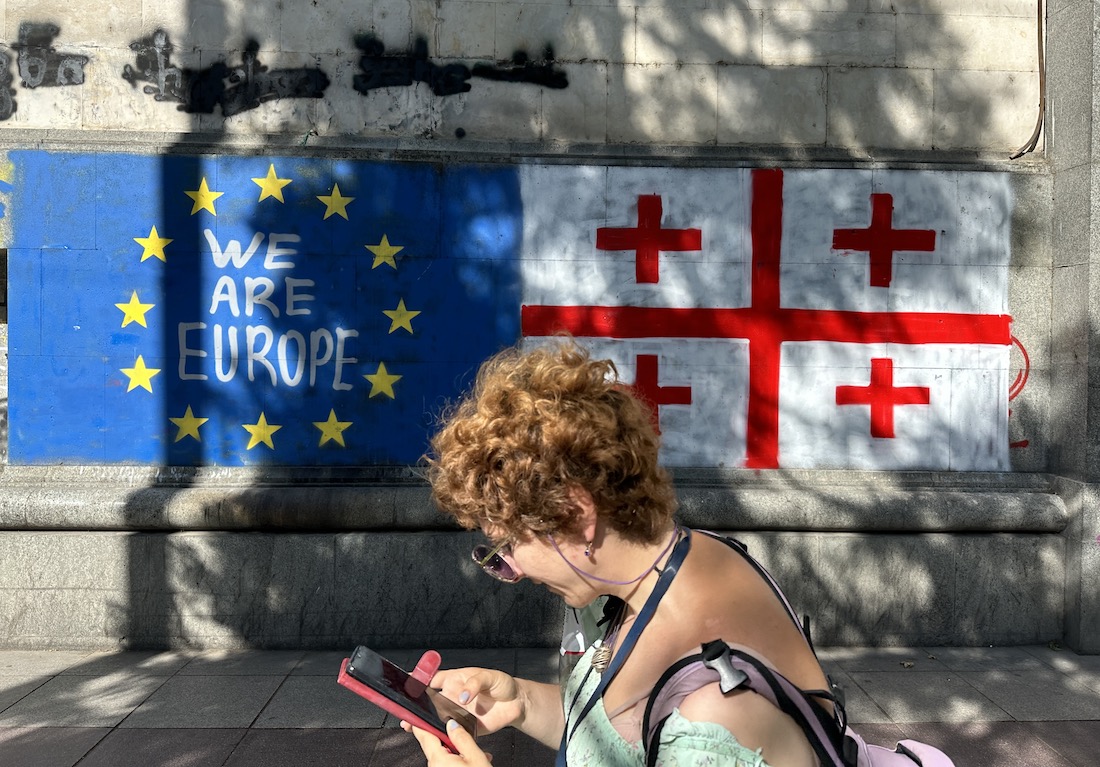
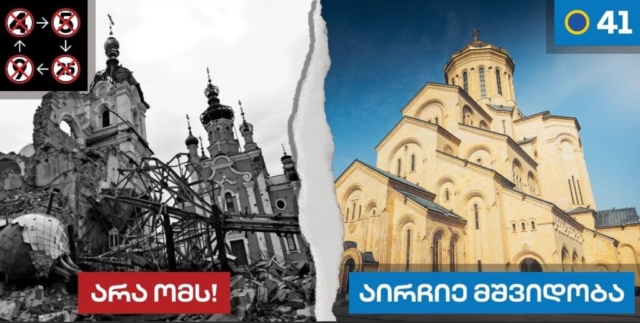
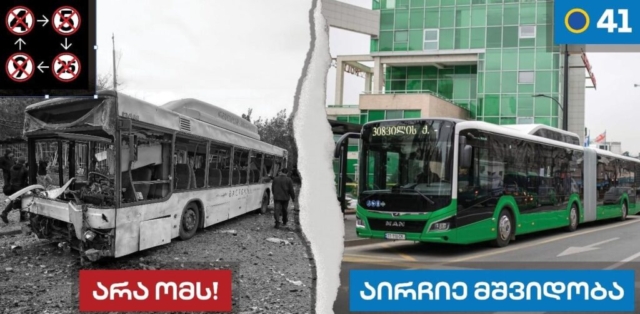
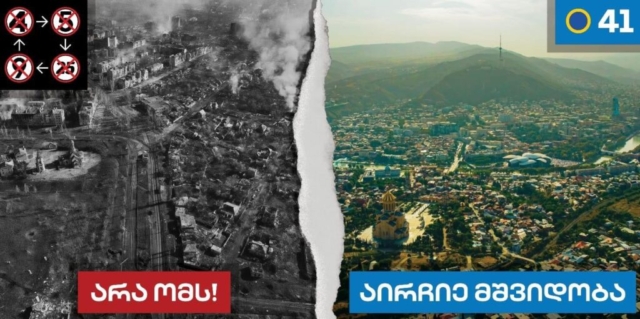
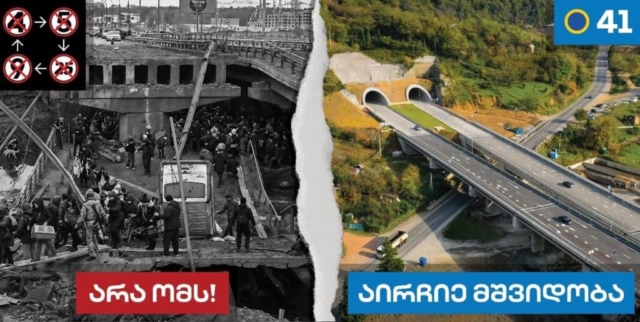



Join the discussion
Become a member to translate comments and participate